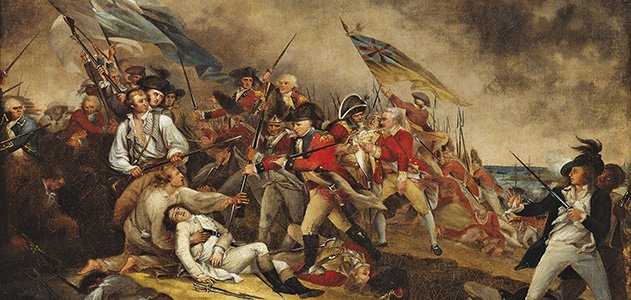Another one, this time out of Spain:
Spain brought in its new public security law on Wednesday limiting freedom of speech and curbing the right to peacefully protest with the introduction of fines ranging between €100 ($111) and €600,000.
Under the new law, anyone who organizes or takes part in an “unauthorized protest” could be fined between €30,000 and €600,000 if the protest takes part near institutions such as the Spanish parliament.
Using Twitter, Facebook or Instagram to call on people to protest will be fined under the new law, an attempt to put paid to the spontaneous protests that have proved very powerful in building the indignado movement.
Again, we will undoubtedly be assured by a smooth-tongued political sociopath that these laws are actually making us MORE free, not less. If you think that the powers that be in the United States wouldn’t LOVE to enact some of the same laws here, you’re kidding yourself. Sadly, it appears as they won’t even have to, as it appears more and more that we are content to censor ourselves.
A mature adult would realize that, with free speech, comes cruelty, mockery, and inflammatory talk. You have to decide whether it’s worth it or not. I say it is. I believe it is far more necessary and preferable to live in dangerous liberty than peaceful tyranny. But I feel that the segment of society that would agree with that statement is rapidly dwindling.
We are now in a “get-along” society. Everyone is terrified to rock the boat. Our government is dominated by corporate interests who wishes all of you would just shut up about the confederate flag, shut up about illegal immigration, and shut up about ISIS. They want you to spend your paychecks purchasing useless crap that you don’t need, in between marathon sessions of staring into your screen of choice and marching off to work in Most Glorious Tractor Factory, preferably singing patriotic songs, and, most importantly of all, never say anything that would cause controversy.

We were presented with two visions of a totalitarian society by men much, much smarter than I am. One was George Orwell, who, in 1984, predicted a ruthless wave of oppression by an all-knowing and and all-intrusive state government, who would crush the people in an iron grip of forced censorship.
But the other, and in my opinion, more accurate vision was given by Aldous Huxley in his novel, Brave New World. This was a more benevolent government, one that discouraged critical thinking by giving the citizens mundane and trifling activities, and abundance of material goods that required little work, consumption of drugs and mindless, joyless sex. Sound familiar?
There’s no need for a heavy-handed, dissent-crushing government anymore. We’re doing it to ourselves. We’ve created an atmosphere where everyone is terrified of disagreement, of conflict, of CONTROVERSY. Encouraged by a tiny number of shrill activists who demand people are fired for possessing WrongThink, we’ve isolated ourselves into our digital worlds; we only interact with those who agree with us. Indeed, we are becoming the opposite of “Independent.” We have people in South Carolina being lectured on how they should live by people who live in Manhattan. We are becoming a bland, boring, corporate country where everyone thinks and talks the same; we are the human equivalent of McDonald’s.
I was perusing twitter, as I am wont to do, and came across this activist living in NYC. She, like many liberal activists, religiously believes in the theory of “white privilege,” wherein white guys are approached by a secretive cabal of whites and given success and security regardless of their station in life. Which is, of course, absurd, unless you are a militant activist who lives on the internet and never leaves the bubble that you’ve placed yourself in. So we had a dialogue. To her credit, it was mostly civil, despite her militancy (go read the whole thing if you want, @BKactual.)
https://twitter.com/BKactual/status/616587692558708736
https://twitter.com/BKactual/status/616591508720979968
The point being, this person was amazed that someone was even disagreeing with her. She was entirely insulated from interaction with anyone outside her specific circle. Thanks to the internet, that she was incredulous to find that there might actually be someone out there who disagreed with her, or someone who would even bother pointing out how huge of an RACIST INSULT it was to deride people who came from nothing and were successful owed it to this mysterious structure of privilege. And even if someone in her circle DID maybe disagree, they would never dare say it out loud in hipster Brooklyn. That might be considered gauche.
I mean, my dad took the city bus to work and worked two jobs while having a shit box car. My brother dodged IEDs in Fallujah. I’m sure they both would have appreciated a little of this mythical privilege.
OK, so I may have indulged in a BIT of hyperbole. I know that all of the guys in NYC aren’t pussies. There are at least one or two pipe hitters hanging out there. And gays, even though I tell tons of jokes about you, and always will, I love you. Where would we get our too-tight clothing, fabulous interiors, and hipster restaurants if it wasn’t for you? But you get my point.
What would George Washington think about this? He would think we are all a giant collection of sniveling, soft weaklings. Those men risked everything, up to and including their lives, all so we could inherit a country where we scream at each other about men who enjoy penis, colored flags, and melanin shade; while our government signs secret trade agreements giving corporations even more power. We’re being distracted with meaningless shiny objects while our sovereignty and borders are being eroded.

I wonder sometimes if it’s still worth it. It’s exhausting being a contrarian. It wears you out. Plus, people now think you’re “combative” if you do terrible things like disagree with them, or be “mean,” or look them in the eye; you know, things that MEN used to do. And it’s ten times worse on the internet, where anonymity causes people to say things they would never in a million years say to my face. Hence my simple Rule of Internetting: Don’t say anything on the internet you wouldn’t say to someone’s face. It works every time.
I’m sure when G-Dub was freezing his ass off in the frozen mud by the Delaware River, he probably had a few moments where he had some second thoughts. He must have dreamed of going back to smoking reefer and putting the stones to Martha. But it was worth it to him. The tremendous sacrifices that he, and all of the other Americans made must not be in vain.
We all need each other. I need some leftist bleeding-heart hippies every once in a while to temper my impatience with a dose of humanity. And you far-left types? You are going to want those burly, uncouth, bearded, tobacco-chewing, confederate flag-waving, gunslinging, military rednecks around when terrorists start shooting up the local mall.
So speak your mind. Go against the grain. Stand up for injustice. Stop staring at screens. Talk to people who are different than you. Help each other out. Don’t be a pussy. Don’t blame anyone for your failures. Have courage. Motivate yourself and others. And have a sense of humor about all of this bullshit. We’re all stardust, after all.
In the end, every one of us is an infidel, as far as ISIS is concerned. So we might as well act decently to one another. Happy Independence Day.
R.I.P. Air Force Hero Pilot Robert Donahue:
In the aviation age when jets first arrived on the scene, Robert “Bob” Donahue was first in line to fly the F-105s for the United States Air Force.

Major Donahue, 84, died from heart failure on May 31 in Montgomery — his hometown surrounded by family who will remember him as a father, a husband and a decorated war hero.
Following the end of the Korean War, Donahue began flying routine missions and flew more than 100 combat missions during the Vietnam War.
Donahue flew missions over Hanoi in Vietnam and was awarded two Silver Stars, four Distinguished Flying Crosses, Air Force Commendation Medal, the Air Force Cross and 12 Air Metals for his service.
I’d say that’s pretty out-goddamn-standing. Well done, Major Donahue. A huge credit the United States military and, especially, the USAF.
Come On, Guy- Army NCO Walks Into Mall With Long Gun, Panic Ensues:
An Army sergeant was facing charges Friday morning for allegedly carrying a military-style rifle and ammunition outside a North Carolina mall.
Twenty-five-year-old Bryan Scott Wolfinger, of the 82nd Airborne, who is stationed at Fort Bragg in North Carolina, forced the busy shopping center in Fayetteville into lockdown Thursday night.
They said he had a military-grade tactical vest and was carrying multiple high-capacity magazines.
He was taken into custody by Fayetteville police and charged with a misdemeanor — “going armed to the terror of the public,” reports CBSN correspondent Vladimir Duthiers.
Fayetteville police told “CBS This Morning” Wolfinger told them he was at the mall because he “was going to have photographs taken at a studio with the military equipment and rifle.”
Wolfinger, what the hell, man? Ever heard of a kitbag? Yeah, I’m all about the second amendment, but that doesn’t mean I’m walking INTO A CROWDED MALL holding my AR. That’s like a death wish in this day and age. And you have to love the breathless media: a “military-grade tactical vest!!!” OOOH, SCARY.
I’m assuming this was a guy who had actually been in the desert at one point, since he WAS in the 82nd airborne, but I’m not sure. Maybe he was like a secretary or something and didn’t have any good war pics.
All in all, pretty stupid. Yeah, I get it… you want to take a few hooyah pictures to impress the chicks on the internet or whatever. I don’t think taking pictures in a studio with a professional photographer has quite the same cache as taking pictures in one of the shitholes overseas, with the grime and blood of your enemies smeared all over your uniform, but hey: go for it. Next time, maybe put the kit on once you get inside, braniac.
It Only Took 8 Years to Kill One of the Dumbest Programs in Military History:
WASHINGTON — The Army has quietly killed a program that put social scientists on battlefields to help troops avoid unnecessary bloodshed and improve civilians’ lives, an Army spokesman said Monday.
The initiative, known as the Human Terrain System, had been plagued by fraud and racial and sexual harassment, a USA TODAY investigation found.
HTS, which spent at least $726 million from 2007 to 2014 in Iraq and Afghanistan, was killed last fall, Gregory Mueller, an Army spokesman, said in an email. Commanders in Afghanistan, where the U.S. combat mission ended last year, no longer had a need for the advice of civilian anthropologists.
“The HTS program ended on September 30, 2014, as there was no longer a requirement for HTS teams in theater,” Mueller said in a statement.
Several months earlier, Army Secretary John McHugh had praised the program, saying the information the teams provided was “actionable and useful for decision-making.”
That’s nice. So, in public, they trot out the USELESS spokesjerk to assure you dumb rubes that spending three quarters of a billion dollars on some academics, with far less experience than any veteran Army ODA, was a fantastic use of taxpayer money, only to quietly kill it a few months later. Just tell the truth.
Some team members, according to documents obtained by USA TODAY, filled out fake time sheets at the urging of supervisors to pad their paychecks. Some members were paid $280,000 per year for work that investigators doubt was done. Team members, who worked as federal government employees, were entitled to six months of paid leave when they returned home.
As per usual. No accountability, no oversight, and no sense of shame. (Looking sideways at you, Greece.)
In a survey about their work environment, one team member wrote, “Sexual harassment is prevalent, and sexist behavior is an everyday occurrence; I was sexually harassed in the field repeatedly; sexual comments and jokes are rampant; nearly every female in the program faces some form of sexual harassment.”
You can’t throw civilian academics into a military field setting. This is traumatic culture shock. I mean, an academic isn’t prepared for casual conversations containing terms like, “skullfuck,” or “cum dumpster.” In the military, that’s just being affectionate. Even some of the chicks talk like that.
The Army responded to the allegations of fraud by ordering training for Human Terrain System employees on how to fill out time sheets properly, the documents show.
Yeah… I’m pretty sure the problem isn’t that they didn’t know HOW to fill out the time sheets properly, geniuses. On the contrary, they knew all TOO well. They were so well versed in how to do it, that they stole hundreds of thousands of dollars. You ever notice that time sheets are never filled out incorrectly with the result being LESS cash? Funny, that.
Of course, the story didn’t say if anyone went to jail. Nobody ever goes to jail.
From a New Orleans Brewery comes the “31 Stout,” a beer that pays tribute to the Navy SEALs, Air Force PJs and Combat Controllers, and army personnel lost when Extortion 17 was shot down in Afghanistan. Go check them out on twitter at the link above, or you can view all the beers they have over on their website, Bayou Teche Brewing. They’re also on Facebook.
The guys are donating the profits to the Special Operations Warrior Foundation. So, between that and the fact that this is a delicious, creamy ale, it’s really a no-brainer. If I wasn’t currently about 7,000 miles away, I’d go crush a few. Go get some if you’re in the area.
When the University of Missouri at Kansas City was looking for a celebrity speaker to headline its gala luncheon marking the opening of a women’s hall of fame, one of the names that came to mind was Hillary Rodham Clinton.
But when the former secretary of state’s representatives quoted a fee of $275,000, officials at the public university balked. “Yikes!” one e-mailed another.
So the school booked the next best option: her daughter, Chelsea.
Quick: name something about Chelsea Clinton that you find interesting. If your answer was “nothing, she’s a complete dud,” congratulations. You are now more intelligent than everyone at the University of Missouri.
As with Hillary Clinton’s paid speeches at universities, Chelsea Clinton made no personal income from the appearance, her spokesman said, and directed her fee to the Bill, Hillary and Chelsea Clinton Foundation.
Every article I read about these professional grifters has the same caveat thrown in by the author. “Don’t worry, she didn’t make any money, it went to the foundation.” You mean the foundation that pays for her meals, her rent in great apartments in houses, her private jet airfare, or her staff? THAT’S MAKING MONEY. Idiots.
“Chelsea is grateful to have the opportunity to speak at events like this while also supporting the work of the Clinton Foundation,” said the spokesman, Kamyl Bazbaz. He said she was happy to “celebrate the legacy of women in their community.”
Let me make a brief list of things I’d rather do than listen to Chelsea Clinton drone on about the legacy of women in the community:
- Push a knitting needle through my nose and into my brain.
- Punch myself in the crotch while wearing brass knuckles.
- Eat brussel sprouts.
- Mud wrestle nude with Michael Moore and Lena Dunham.
- Spend more than 24 hours in Dubai.
- Get a root canal in Haiti.
- Have sex with Chelsea’s mom. (yup.)
- Have sex with Chelsea’s dad. (mmm-hmm.)
Hmmm… Drone Shot Down by Syrians?
The Air Force has acknowledged that an MQ-1B Predator, lost March 17 during an intelligence flight over Syria, was shot down.
While Syria’s official news agency at the time claimed the remotely piloted aircraft was shot down, U.S. Defense Department officials only would say the drone was lost, and didn’t provide additional information because the incident was under investigation.
The Air Force story did not say if the aircraft was shot down by Syrian forces or fighters with the Islamic State group. At the time, Syrian state media claimed the aircraft was shot down by Syrian air defenses. If correct, the shoot down contradicts Air Force and Pentagon claims that throughout the air campaign Syrian air defenses have been “permissive.”
Does anyone have any idea about what we are doing over there? So, the drone may have been shot down by ISIS. If that’s true, that’s pretty scary, because it takes more than a modicum of technical and tactical sophistication to shoot down a drone from the ground. And if it turned out to be the Syrian Air Defenses, that’s also troubling.
New Orlean Man Enjoys Cadillacs; Public Masturbation:
NEW ORLEANS —A Mandeville man was arrested after exposing himself Tuesday evening on Lakeshore Drive, police said.
SOFREP ladies, I think you’re actually going to like this one. He’s a fine-looking gentleman with not at all suspicious facial hair:
Not bad, right??? I do wonder how the JMFG Direct people feel about the free advertising for their food delivery company. Yeah, I looked it up.
Keith Cangiamilla, 51, was booked Tuesday evening into the St. Tammany Parish Jail on one count of obscenity, the Mandeville Police Department said.
According to the MPD, officers were notified around 6:30 p.m. that a naked man exposing himself and masturbating in public in the 1700 block of Lakeshore Drive.
The MPD said officers stopped Cangiamilla when he left the area in his 2003 Cadillac. He was still completely naked when officers took him out of the car.
Cangiamilla remains at the St. Tammany Parish Jail during the most recent check. He faces a fine between $1,000 and $2,000 and six months to three years imprisonment.
I always wonder where it all goes wrong for these guys. One minute, you’re cruising along, you have a cadillac, a place to live, maybe a job… and then you’re naked and masturbating in public. You have to know someone is going to call the cops, don’t you? Or do you think, “Man, the ladies are going to DIG this once I pull it out.”
Is this boredom? Mental illness? FLAKKA??? Twitter me @BKactual.













COMMENTS